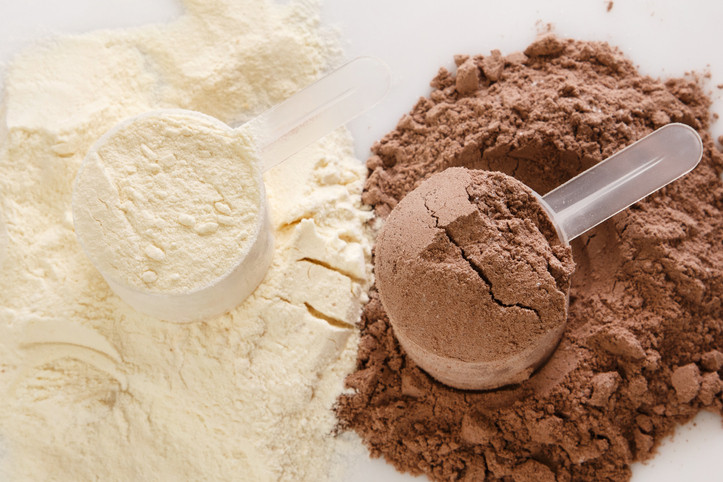
Counting steps is good — is combining steps and heart rate better?

Appendix pain: Could it be appendicitis?

Can saw palmetto treat an enlarged prostate?

How does Ozempic work? Understanding GLP-1s for diabetes, weight loss, and beyond

Zinc: What it does for the body, and the best food sources

Respiratory health harms often follow flooding: Taking these steps can help

Tips to leverage neuroplasticity to maintain cognitive fitness as you age

Can white noise really help you sleep better?

Celiac disease: Exploring four myths

What is prostatitis and how is it treated?
Harvard Health Blog
Read posts from experts at Harvard Health Publishing covering a variety of health topics and perspectives on medical news.
Articles
Why the human heart thrives with exercise
A study comparing the hearts of apes with four different groups of men demonstrates how the heart adapts over a person’s lifetime depending on what exercise a person does (or doesn’t do). The most revealing part of the findings pertained to men who are generally not active.
Go figure: A healthy eating approach helps people be healthy
A study comparing the outcomes of three eating plans (Mediterranean diet, paleo diet, or intermittent fasting) that were followed for a year found that all participants lost weight, and also had added benefits such as lower blood pressure.
Pregnant and worried about the new coronavirus?
How to talk to teens about the new coronavirus
Time to redefine normal body temperature?
Is 98.6˚ F still the norm for body temperature? Data collected over almost 160 years show that the normal body temperature has been declining and is now roughly one degree lower.
The skinny on freezing fat
A noninvasive treatment to remove subcutaneous body fat involves the freezing of areas that leads to a reduction in the fat layer. It’s an option for people who have lost weight and are trying to get rid of stubborn remaining fat, but it is not a weight-loss treatment.
Coping with coronavirus anxiety
Anxiety about the new coronavirus is understandable. But there are actions you can take –– or avoid –– to help you cope with anxious feelings and choices you can make to help yourself and others.
Peanut allergy: A new medicine for children may offer protection
In children with food allergies, peanut allergy is the one most likely to cause a severe reaction. A newly approved medication made from peanut flour treats peanut allergy by giving a gradually increasing dosage over several months.
The BEEP program: Keep your balance
As people get older, the complex system that helps them maintain balance does not work as effectively, increasing the risk of a fall. A study found that specific exercises can improve balance in older adults.
The scoop on protein powder
The amount of protein you need depends on your age, health, and the intensity of your fitness routine. For most people it’s relatively easy to get the recommended amount from food, but there are situations when someone might want to consider a protein powder supplement.
How to talk to children about the coronavirus
Can stress really make hair (or fur?) turn gray?
Does stress really turn hair gray? Scientists conducted experiments that simulated stress and led to gray hair—in mice, which does not mean it’s true for humans, regardless of what you may have heard in the media.
Surrogacy: Who decides to become a gestational carrier?
What prompts a woman to become a surrogate or gestational carrier, carrying a child for people she may not know? The answers seem straightforward in some instances and more complex in others.
Can short bouts of running lengthen lives?
An analysis of research suggests those who run regularly –– regardless of pace, distance, or amount of time –– are more likely to live longer and have a lower risk of cardiovascular disease or cancer.
Pain and neuromodulation: What’s all the “buzz” about?
Neuromodulation therapies use a targeted stimulus to help people manage pain. This can be in the form of an electrical stimulation device or a pump containing medication, either of which can be implanted in the body.
Cutting down on alcohol helps if you have atrial fibrillation
There is good evidence that the more you drink, the more likely you are to develop atrial fibrillation. A study found that people with afib who were willing to abstain from alcohol were less likely to have a recurrence.
The role of our minds in the avoidance of falls
In older people, the majority of falls occur when someone is standing or walking while also performing a separate cognitive or motor task. These tasks require more cognitive effort as we age, but focus and awareness can prevent falls from happening.
What’s new with the Nutrition Facts label?
The Nutrition Facts label that appears on packaged foods has been updated to provide consumers with more thorough information, and also to more accurately reflect typical consumption habits.
As coronavirus spreads, many questions and some answers
Readers have many questions about the new coronavirus (COVID-19). We have enlisted one of our experts on infectious disease to answer some of them.
New study compares long-term side effects from different prostate cancer treatments
Prostate cancer therapies are improving over time. But how do the long-term side effects from the various options available today compare? Results from a newly published study are providing some valuable insights. Investigators at Vanderbilt University and the University of Texas MD Anderson Cancer Center spent five years tracking the sexual, bowel, urinary, and hormonal […]
Dopamine fasting: Misunderstanding science spawns a maladaptive fad
Dopamine is a neurotransmitter involved in the body’s system for reward and pleasure. A recent trend has people avoiding stimulating activities in the belief that doing so allows the body to reset from being overstimulated, but the original idea has been misunderstood and wrongly applied.
Co-parent adoption: A critical protection for LGBTQ+ families
Establishing a legal relationship between parents and their children allows both parents to make care decisions. For LGBTQ+ families, this can be especially important. In some states, co-parent adoption, which offers broader protection than a state birth certificate, is available.
Puffing away sadness
The nicotine in cigarettes stimulates the nervous system, resulting in a mood boost. But does this mean that smokers will reach for a cigarette when they are feeling sad? Researchers found that sad feelings may cause some people to smoke.
Hands or feet asleep? What to do
It’s happened to all of us: a hand or leg temporarily “falls asleep,” usually from being in one position for too long. Why does it happen? Are there times when you should be concerned about it?

Counting steps is good — is combining steps and heart rate better?

Appendix pain: Could it be appendicitis?

Can saw palmetto treat an enlarged prostate?

How does Ozempic work? Understanding GLP-1s for diabetes, weight loss, and beyond

Zinc: What it does for the body, and the best food sources

Respiratory health harms often follow flooding: Taking these steps can help

Tips to leverage neuroplasticity to maintain cognitive fitness as you age

Can white noise really help you sleep better?

Celiac disease: Exploring four myths

What is prostatitis and how is it treated?
Free Healthbeat Signup
Get the latest in health news delivered to your inbox!
Sign Up

























